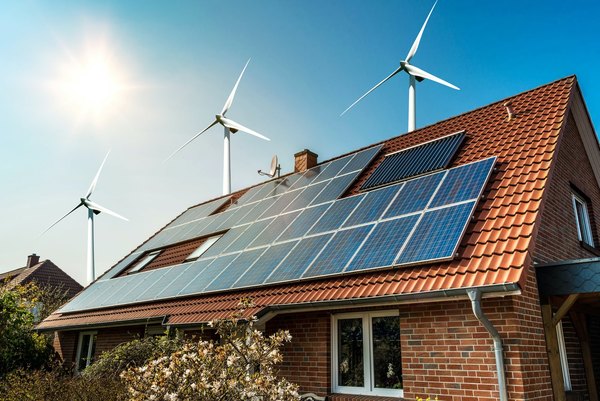Look for solar energy grants and take advantage of the solar tax credit.
Installing solar energy on your home can be costly, but the savings can be immense. Fortunately, there are solar energy grants and even a solar tax credit that makes it more affordable to make your home environmentally friendly. Grants are money that you don’t have to pay back, which helps offset your out-of-pocket expenses. If you can’t find a grant, consider a rebate, which reimburses you for the money you paid out for solar energy.
How to Find, Qualify and Apply for Solar Energy Grants
Government agencies offer a variety of solar energy grants, helping you afford the energy efficient changes to your home. They include:
Green Retrofit Grant
HUD offers this grant for homeowners making energy efficient changes that include solar panels. The grants are for homes in low-income areas and are provided to local organizations in ‘blocks.’ Homeowners that receive the grant have 2 years to use the funds.
USDA Energy Grant
The USDA offers rural and farm owners in areas with high energy costs up to a $20,000 grant. You can use the funds to upgrade, repair, acquire, or create energy systems that enhance energy efficiency either on or off the grid.
Tribal Energy Program
This US Department of Energy program is for homeowners living on tribal land. It helps members of a tribe lower their use of energy by switching over to solar energy. The program provides funding, technical assistance, as well as education and training, to help tribal members understand how to implement energy efficient technology in their homes.
REAP Grants
Small rural businesses and farmers have access to grants of up to $20,000 with a REAP grant (Rural Energy for America Program). You can use the funds to install new energy systems as well as improve an existing system.
What States Have Solar Energy Grants?
Almost every state throughout the US has some type of solar energy grant, especially for low-income and rural households. Many states also offer rebates, which pay you back a portion of the funds you paid for the solar energy changes, such as solar panels and solar water heaters. While it’s not a grant and you have to foot the bill up front, you do get reimbursed through a federal block of funds awarded to your state.
In addition, many states have state tax credits, allowing you to lower your tax liability in exchange for making solar energy improvements. You’ll be able to write off a portion of your expenses, which vary by state, lowering your tax liability and keeping more money in your pocket.
Investment Tax Credit for Solar (Solar Tax Credit)
Homeowners and business owners can write off a portion of the cost of their solar energy on their taxes. The IRS offers the Investment Tax Credit until 2022, which allows you to write off 30% of the cost of your solar panel installation after any eligible rebates or grants are applied.
Other Ways to Save on Solar Energy
States and municipalities offer a few other ways to save on solar energy:
- Cash rebates – Your state, city, or even utility company may offer cash rebates for solar energy changes. Each rebate has specific guidelines including dates you must apply by in order to be eligible for the funds.
- Solar Renewable Energy Certificates – Certain states are required to generate a specific amount of solar energy. If you made solar energy changes, you earn solar renewable energy certificates for the energy you produce. Your utility company may then buy your solar renewable energy certificates to meet their quota, giving you more income.
- Performance-based incentives – Some states also pay per kilowatt-hour for the energy produced. You’ll know the incentive rate when you install the system and don’t have to worry about selling your certificates in a marketplace.
- Energy efficient mortgages – The FHA, VA, and conventional (Fannie Mae) programs all have an energy efficient mortgage program. While it’s not a grant, the energy efficient mortgage programs allow you to add money to your mortgage amount without worrying about the home’s value to make energy efficient changes. You do have to pay the money back, but can use your solar energy grants and rebates to help minimize the cost.
What’s the Cost to Install Solar?
Just because solar energy saves you money, doesn’t mean it doesn’t cost a large upfront investment. Solar panels, for example, cost between $10,800 and $14,200 after federal solar tax credits. The exact cost of your solar energy, though, depends on how much energy you want to create. The more energy you need to create, the larger the system you’ll need, which obviously inflates the costs.
Is Solar Energy Worth It?
Whether or not solar energy is worth it for you depend on several factors:
- What do you pay for electricity now? Compare that amount to how much you can save using solar. Does the savings make up for the upfront cost of installing solar? Will you live in the home long enough to realize the savings?
- Are you eligible for solar energy grants or tax credits? There are many ways to save on solar energy, but not everyone qualifies. If you don’t qualify, can you afford the full cost?
- Do you have the cash or must you finance it? Think about the cost of financing and how it affects your savings before making a decision.
Grants for solar energy are a great way to help you make your home environmentally friendly. Make sure you exhaust all options for financial assistance with your solar energy, putting your focus on grants, the solar tax credit, and rebates for the lowest cost out of your own pocket. Before you do any of this, though, have an energy audit completed to make sure that you will benefit from solar energy in a way that makes financial sense.






